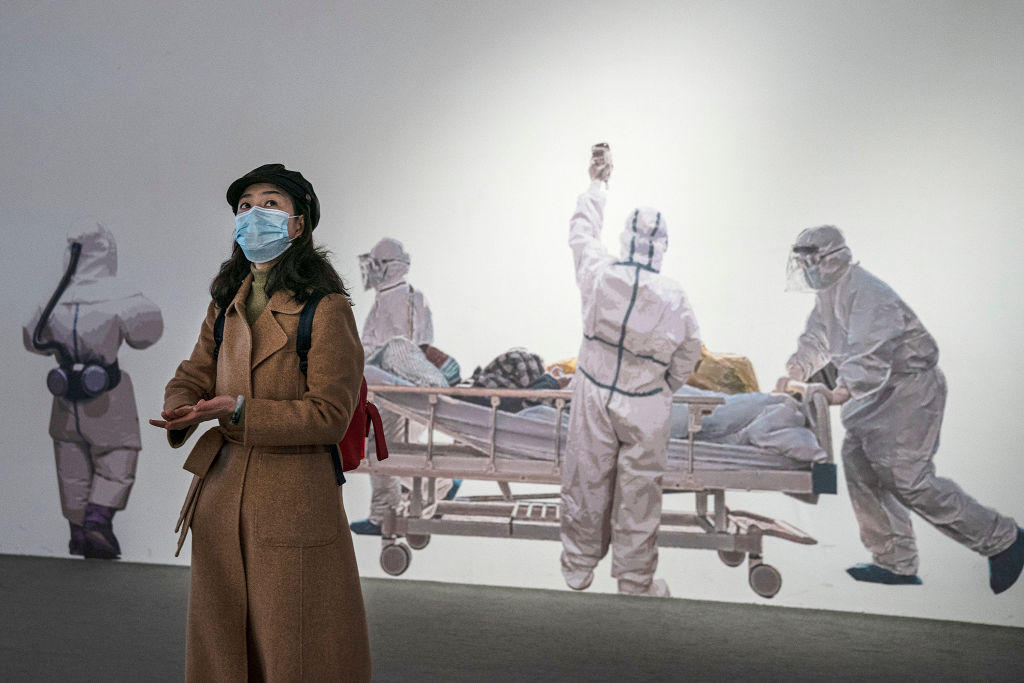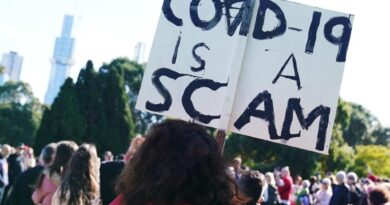So, where did Covid-19 come from?

The arrival of the novel coronavirus that causes Covid-19, which has killed 3.5 million people and counting, should have been the moment when the World Health Organization came into its own.
This is its primary rationale and justification: to be the world’s frontline agency for preparing for, hopefully averting, but otherwise mitigating and managing a deadly new pandemic. Instead, it finds itself lurching from one crisis of credibility to another and taking trust in public health institutions and experts as collateral damage.
In May, an independent review panel set up by the WHO branded the confused global response to the pandemic as a ‘toxic cocktail’.
The WHO was initially tardy in acknowledging and alerting the world to the coronavirus outbreak, deferring dangerously to China’s sensitivities and pronouncements.
Since then it has issued constantly mutating, confusing and sometimes downright inconsistent messaging on human–human transmission, mask efficacy, the cost–benefit equation of lockdowns, testing protocols and outpatient treatment options for infected people. Now the idea that the virus might have escaped from a lab in Wuhan, long derided as fanciful and possibly racist, is gaining increasing mainstream traction.
In April 2020, Tom Sauer and I published an article in the Bulletin of the Atomic Scientists musing about the implications of intensive-care unit bed capacity as the new norm for assessing the acceptable risk threshold for nuclear weapons. That debate is not germane to today’s topic.
In its original formulation, our article began: ‘A novel coronavirus emerged from the wet markets of Wuhan, China, late last year by hopping across from animals to humans.’ The bulletin proposed the following change: ‘A novel coronavirus emerged from either the wet markets or biosafety laboratories of Wuhan.’ I demurred, relying primarily on the firmly stated conclusion of the WHO. Experts dismissed outright the idea of the deliberate weaponisation of a previously known virus, or that it had been manipulated in a lab.
The published article read: ‘… hopping in one way or another from other animals to humans’.
I felt vindicated two days later. In a press release on 30 April 2020, the US Office of the Director of National Intelligence stated: ‘The Intelligence Community also concurs with the wide scientific consensus that the COVID-19 virus was not manmade or genetically modified.’
Now I feel deflated, thanks in no small measure to an article in the bulletin on 5 May by science writer Nicholas Wade—back to that in a moment.
On 19 February 2020, 27 prominent scientists wrote an open letter in The Lancet condemning ‘conspiracy theories’ that questioned the natural origins of the virus. When Republican Senator Tom Cotton suggested early last year that the virus might have come from the Wuhan lab, he was buried under a media pile-on from the New York Times (‘Cotton repeats fringe theory’), the Washington Post (‘Cotton keeps repeating an already debunked conspiracy theory’), The Guardian (‘floated a conspiracy theory’) and CNN (‘the height of irresponsibility from a public official’).
A possible explanation for the media groupthink on the lab-leak theory has been dubbed ‘Trump derangement syndrome’—a view that everything Donald Trump did as president was wrong. In an interview with National Geographic on 5 May 2020, Anthony Fauci, director of the US National Institute of Allergy and Infectious Diseases since 1984, explained that ‘this could not have been artificially or deliberately manipulated’. Instead, the evidence ‘strongly indicates’ that it ‘evolved in nature and then jumped species’. Chris Cillizza wrote on the CNN website on the same day that ‘Fauci just crushed Donald Trump’s theory on the origins of the coronavirus.’
In an interview with the Straits Times in May 2020, WHO chief scientist Soumya Swaminathan was adamant that, based on genome markers, the novel coronavirus was not synthesised in a lab. ‘What we do know’, she insisted, ‘is that this is a naturally occurring virus, that it was not artificially synthesised in the lab’.
On 15 September, Li-Meng Yan, a virologist, told Tucker Carlson on Fox News: ‘I can present solid scientific evidence to our audience that this virus, Covid-19 SARS-CoV-2 virus, actually is not from nature. It is a man-made virus created in the lab.’ PolitiFact gave her a ‘pants on fire’ fact-check rating. The WHO team reported in February that it was ‘extremely unlikely’ that the virus originated in a lab.
However, scientists have still not been able to substantiate the natural origin claim.
In his long and explosive article for the bulletin, Wade, who has written on science for Nature, Science and the New York Times, carefully explains why the most likely origin of the Covid-19 pandemic is an accidental leak from the Wuhan Institute of Virology lab. His analysis is backed by his now former New York Times science reporter colleague Don McNeill, despite initial deep scepticism. PolitiFact has now retracted its ‘pants on fire’ criticism.
Meanwhile, the plot has thickened about the role of the WIV. In two articles on 23 and 24 May, the Wall Street Journal detailed fresh US intelligence assessments based on WIV researchers struck by flu in November 2019.
Three scientists in a highly protected lab, in the same week, falling sick enough to require hospitalisation is a statistical improbability as a chance event. Adding to suspicions, the WIV has refused to share the raw data, safety logs and lab records on its extensive research on coronaviruses in bats.
There are unanswered questions also about another incident in southwest China in 2012, when six miners fell sick and three died. WIV scientists, called in to investigate, collected samples from bats in the mine and identified several novel coronaviruses.
Among those demanding a proper investigation into the origins of Covid-19 are 18 scientists who’ve called on China’s labs and agencies to ‘open their records’.
At a Senate hearing on 11 May, Fauci conceded that the lab-leak hypothesis was a real possibility and said he was ‘totally in favor of a full investigation of whether that could have happened’.
To his credit, even WHO chief Tedros Adhanom Ghebreyesus said in March that the lab-leak possibility required further investigation. At the meeting of the World Health Assembly in Geneva on 25 May, the US called for independent and transparent new studies on when, where and how the pandemic began.
However, the WHO cannot legally compel China to agree to and cooperate with another international inquiry, and there’s virtually no chance of China capitulating to US-led Western pressure to do so.


